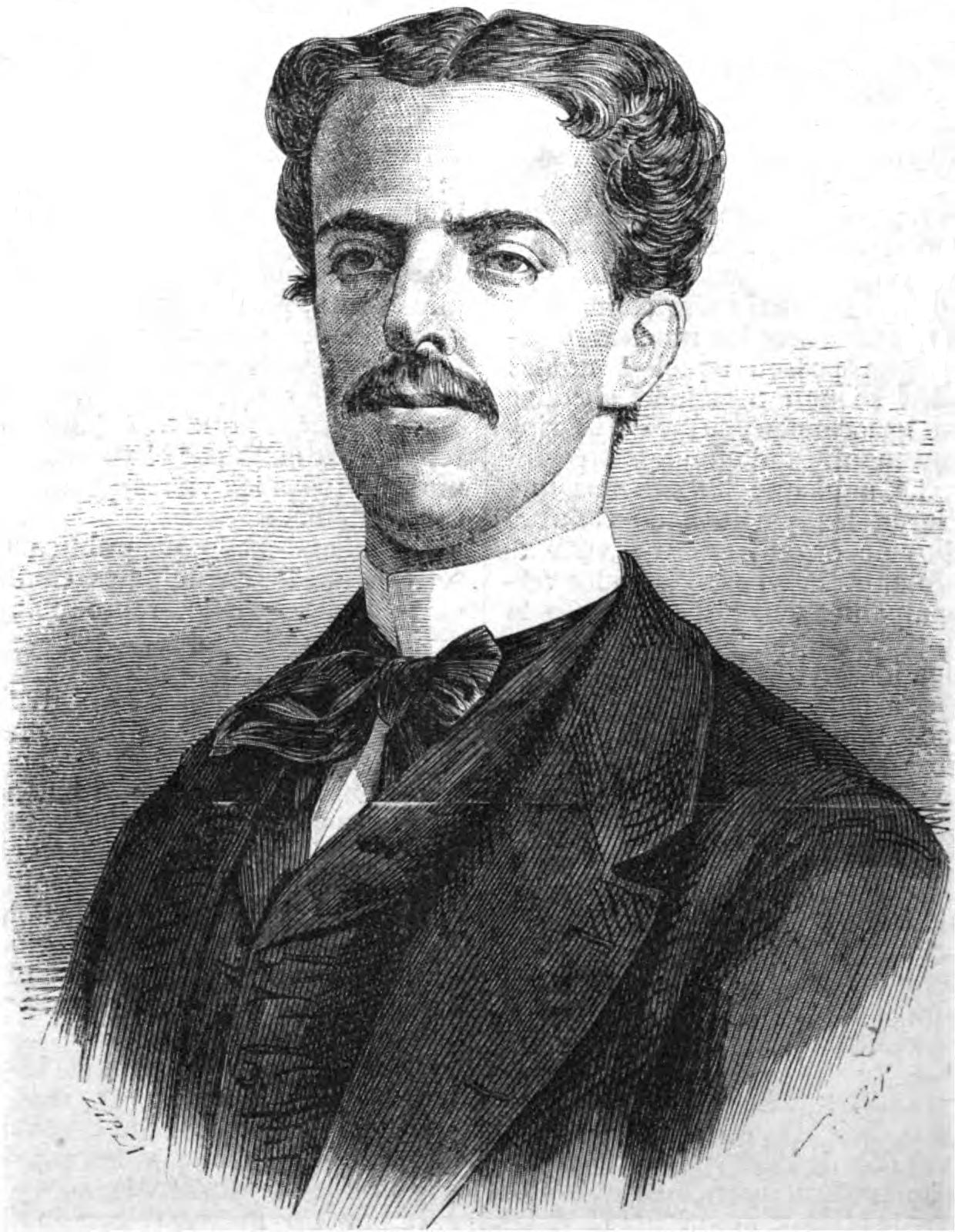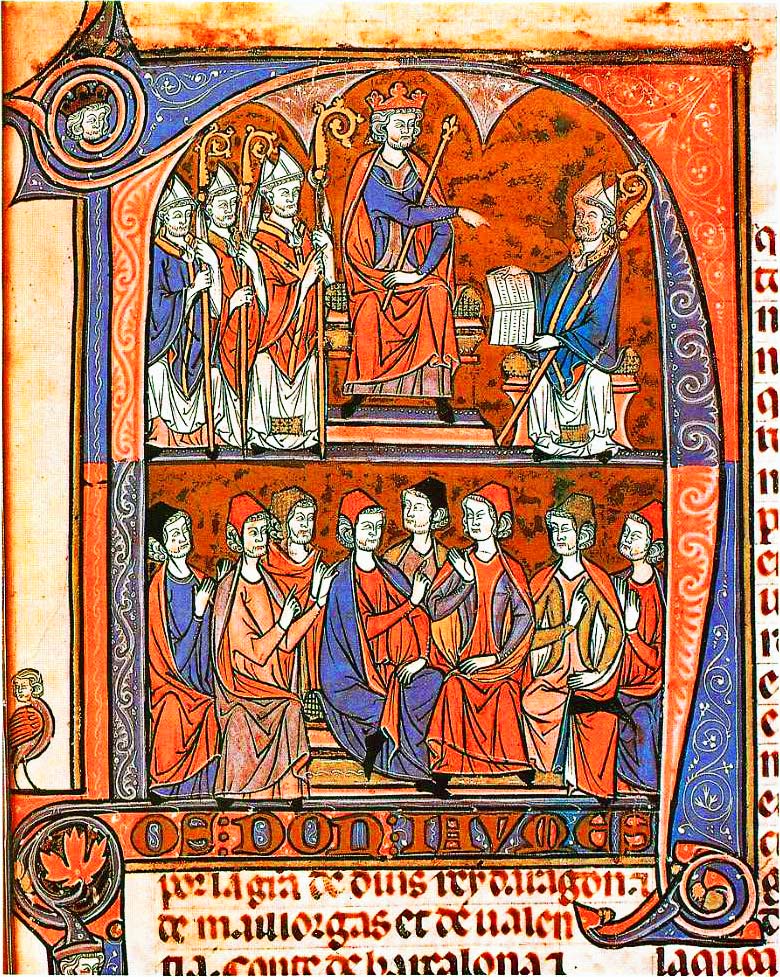|
Integrism (Spain)
Integrism was a Spanish political philosophy of the late 19th and early 20th century. Rooted in ultraconservative Catholic groupings like Neo-Catholics or Carlists, the Integrists represented the most right-wing formation of the Restoration political spectrum. Their vision discarded religious tolerance and embraced a state constructed along strictly Catholic lines; the Integrists opposed Liberalism and parliamentarian system, advocating an accidentalist organic regime. Led first by Ramón Nocedal Romea and then by Juan Olazábal Ramery they were active as a political structure named Partido Católico Nacional (also known as Partido Integrista), but the group retained influence mostly thanks to an array of periodicals, headed by the Madrid-based '' El Siglo Futuro''. Though Integrism enjoyed some momentum when it formally emerged in the late 1880s, it was soon reduced to a third-rate political force and eventually amalgamated within Carlism in the early 1930s. Origins The role ... [...More Info...] [...Related Items...] OR: [Wikipedia] [Google] [Baidu] |
Antonio Aparisi Guijarro
Antonio Aparisi y Guijarro (29 March 1815 – 5 November 1872) was a Spanish politician and journalist. Biography Born in Valencia, Guijarro grew up in poverty but was still able to study in the Andresiano School of his native city and attended the University of Valencia and later the University of Madrid earning his degree, where he majored in law and become a consultant in the court. He was very much a traditionalist and believer in retaining Catholic religious values and ideals and did much for as a journalist and writer. In 1843, he founded the magazine ''La Restauración'', and in 1855 the newspaper ''El Pensamiento'' of Valencia. He joined the ranks of the so-called ''neocatólicos'', after his election in 1858 as deputy to Congress in representation of Valencia. From 1862 to 1872, he directed ''La Regeneración'', and in these years also collaborated in ''La Esperanza'' and ''La Estrella''. In 1865, he was again deputy for Valencia and Pamplona and, the following year, was ... [...More Info...] [...Related Items...] OR: [Wikipedia] [Google] [Baidu] |
Rome
, established_title = Founded , established_date = 753 BC , founder = King Romulus (legendary) , image_map = Map of comune of Rome (metropolitan city of Capital Rome, region Lazio, Italy).svg , map_caption = The territory of the ''comune'' (''Roma Capitale'', in red) inside the Metropolitan City of Rome (''Città Metropolitana di Roma'', in yellow). The white spot in the centre is Vatican City. , pushpin_map = Italy#Europe , pushpin_map_caption = Location within Italy##Location within Europe , pushpin_relief = yes , coordinates = , coor_pinpoint = , subdivision_type = Country , subdivision_name = Italy , subdivision_type2 = Region , subdivision_name2 = Lazio , subdivision_type3 = Metropolitan city , subdivision_name3 = Rome Capital , government_footnotes= , government_type = Strong Mayor–Council , leader_title2 = Legislature , leader_name2 = Capitoline Assemb ... [...More Info...] [...Related Items...] OR: [Wikipedia] [Google] [Baidu] |
Third Carlist War
The Third Carlist War ( es, Tercera Guerra Carlista) (1872–1876) was the last Carlist War in Spain. It is sometimes referred to as the "Second Carlist War", as the earlier "Second" War (1847–1849) was smaller in scale and relatively trivial in political consequence. Leading up to the war, Queen Isabella II abdicated the throne in 1868, and the unpopular Amadeo I, son of the King of Italy, was proclaimed King of Spain in 1870. In response, the Carlist pretender, Carlos VII, tried to earn the support of various Spanish regions by promising to reintroduce various area-specific customs and laws. The Carlists proclaimed the restoration of Catalan, Valencian and Aragonese fueros (charters) which had been abolished at the beginning of the 18th century by King Philip V in his unilateral Nueva Planta decrees. The call for rebellion made by the Carlists was echoed in Catalonia and especially in the Basque region (Gipuzkoa, Álava, Biscay and Navarre), where the Carlists managed to de ... [...More Info...] [...Related Items...] OR: [Wikipedia] [Google] [Baidu] |
First Spanish Republic
The Spanish Republic ( es, República Española), historiographically referred to as the First Spanish Republic, was the political regime that existed in Spain from 11 February 1873 to 29 December 1874. The Republic's founding ensued after the abdication of King Amadeo on 10 February 1873. On the next day the republic was proclaimed by a parliamentary majority made up of radicals, republicans and democrats. The period was beset by tensions between federal republicans and unitarian republicans. The period also saw the end of compulsory conscription, the regulation of child labor and the abolition of slavery in Puerto Rico. The government inherited a state of war, the so-called Third Carlist War, ongoing since 1872, and the Ten Years' War, ongoing since 1868, to which the Cantonal rebellion added up in 1873. The January 1874 coup of Pavía ousted the government, giving way to a praetorian republic under General Serrano. In December 1874, General Arsenio Martínez Campos staged ... [...More Info...] [...Related Items...] OR: [Wikipedia] [Google] [Baidu] |
Amadeo I Of Spain
Amadeo ( it, Amedeo , sometimes latinized as Amadeus; full name: ''Amedeo Ferdinando Maria di Savoia''; 30 May 184518 January 1890) was an Italian prince who reigned as King of Spain from 1870 to 1873. The first and only King of Spain to come from the House of Savoy, he was the second son of Victor Emmanuel II of Italy and was known for most of his life as the Duke of Aosta, the usual title for a second son in the Savoyard dynasty. He was elected by the Cortes Generales as Spain's monarch in 1870, following the deposition of Isabel II, and was sworn in the following year. Amadeo's reign was fraught with growing republicanism, Carlist rebellions in the north, and the Cuban independence movement. After three tumultuous years in the throne, he abdicated and returned to Italy in 1873, and the First Spanish Republic was declared as a result. He founded the Aosta branch of Italy's royal House of Savoy, which is junior in agnatic descent to the branch descended from King Umberto ... [...More Info...] [...Related Items...] OR: [Wikipedia] [Google] [Baidu] |
Fuero
(), (), () or () is a Spanish legal term and concept. The word comes from Latin , an open space used as a market, tribunal and meeting place. The same Latin root is the origin of the French terms and , and the Portuguese terms and ; all of these words have related, but somewhat different meanings. The Spanish term has a wide range of meanings, depending upon its context. It has meant a compilation of laws, especially a local or regional one; a set of laws specific to an identified class or estate (for example , comparable to a military code of justice, or , specific to the Roman Catholic Church). In many of these senses, its equivalent in medieval England would be the custumal. In the 20th century, Francisco Franco's regime used the term for several of the fundamental laws. The term implied these were not constitutions subject to debate and change by a sovereign people, but orders from the only legitimate source of authority, as in feudal times. Characteristics ' ... [...More Info...] [...Related Items...] OR: [Wikipedia] [Google] [Baidu] |
Carlist Wars
The Carlist Wars () were a series of civil wars that took place in Spain during the 19th century. The contenders fought over claims to the throne, although some political differences also existed. Several times during the period from 1833 to 1876 the Carlists — followers of Don Carlos (1788–1855), an infante, and of his descendants — rallied to the cry of "God, Country, and King" and fought for the cause of Spanish tradition (Legitimism and Catholicism) against liberalism, and later the republicanism, of the Spanish governments of the day. The Carlist Wars had a strong regional component ( Basque region, Catalonia, etc.), given that the new order called into question region–specific law arrangements and customs kept for centuries. When King Ferdinand VII of Spain died in 1833, his widow, Queen Maria Cristina, became regent on behalf of their two-year-old daughter Queen Isabella II. The country splintered into two factions known as the Cristinos (or Isabelinos) and t ... [...More Info...] [...Related Items...] OR: [Wikipedia] [Google] [Baidu] |
Infante Carlos, Count Of Molina
''Infante'' (, ; f. ''infanta''), also anglicised as Infant or translated as Prince, is the title and rank given in the Iberian kingdoms of Spain (including the predecessor kingdoms of Aragon, Castile, Navarre, and León) and Portugal to the sons and daughters (''infantas'') of the king, regardless of age, sometimes with the exception of the heir apparent or heir presumptive to the throne who usually bears a unique princely or ducal title.de Badts de Cugnac, Chantal. Coutant de Saisseval, Guy. ''Le Petit Gotha''. Nouvelle Imprimerie Laballery, Paris 2002, p. 303, 364-369, 398, 406, 740-742, 756-758 (French) A woman married to a male ''infante'' was accorded the title of ''infanta'' if the marriage was dynastically approved (e.g., Princess Alicia of Bourbon-Parma), although since 1987 this is no longer automatically the case in Spain (e.g., Princess Anne d'Orléans). Husbands of born ''infantas'' did not obtain the title of ''infante'' through marriage (unlike most heredit ... [...More Info...] [...Related Items...] OR: [Wikipedia] [Google] [Baidu] |
Glorious Revolution (Spain)
The Glorious Revolution ( es, la Gloriosa or ) took place in Spain in 1868, resulting in the deposition of Queen Isabella II. The success of the revolution marked the beginning of the with the installment of a provisional government. Background Leading up to the Glorious Revolution, there had been numerous failed attempts to overthrow the unpopular Queen Isabella, most notably in 1854 and 1861. An 1866 rebellion led by General Juan Prim and a revolt of the sergeants at San Gil barracks, in Madrid, sent a signal to Spanish liberals and republicans that there was serious unrest that could be harnessed if it were properly led. Liberals and republican exiles abroad made agreements at Ostend in 1866 and Brussels in 1867. These agreements laid the framework for a major uprising, this time not merely to replace the Prime Minister with a Liberal, but to overthrow Queen Isabella, whom Spanish liberals and republicans began to see as the source of Spain's difficulties. Her continua ... [...More Info...] [...Related Items...] OR: [Wikipedia] [Google] [Baidu] |
Ramón Vinader
Ramón or Ramon may refer to: People Given name *Ramon (footballer, born 1998), Brazilian footballer *Ramón (footballer, born 1990), Brazilian footballer *Ramón (singer), Spanish singer who represented Spain in the 2004 Eurovision Song Contest *Ramón Blanco y Erenas (1833–1906), Spanish brigadier and colonial administrator of the Philippines *Ramón Castillo (1873-1944), former Argentinian president *Ramon Dekkers, Dutch muay thai fighter *Ramón del Valle-Inclán (1866–1936), Spanish dramatist and novelist *Ramón Díaz, Argentine football player and coach * Ramón H. Dovalina (born 1943), American educator *Ramón Emeterio Betances (1827–1898), Puerto Rican nationalist *Ramón Arellano Félix (1964–2002), Mexican drug lord and fugitive *Ramón Fumadó (born 1981), Venezuelan diver * Ramón Fernando García (born 1972), Colombian road cyclist *Ramón Gerardo Antonio Estévez (born 1940), American actor, using the stage name Martin Sheen * Ramón González (athlete) (born ... [...More Info...] [...Related Items...] OR: [Wikipedia] [Google] [Baidu] |





.jpg)